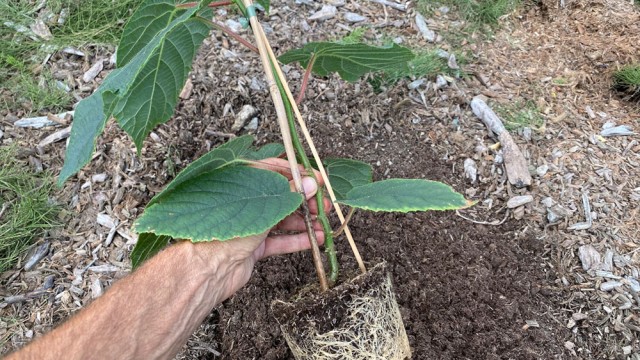
Úloha mykoríznych húb v ekologickom poľnohospodárstve je významná a možno ju považovať za kľúčovú z niekoľkých dôvodov:
Príjem živín
Mykorízne huby vytvárajú symbiotický vzťah s koreňmi mnohých rastlín, čo im pomáha efektívnejšie absorbovať základné živiny, najmä fosfor a niektoré mikroživiny, z pôdy. Tento zvýšený príjem živín môže znížiť potrebu syntetických hnojív v ekologickom poľnohospodárstve, čím sa podporuje udržateľnejší a ekologickejší prístup.
Príjem vody a odolnosť voči suchu
Mykorízne huby môžu tiež zlepšiť schopnosť rastlín prijímať vodu z pôdy. Toto je obzvlášť dôležité v ekologickom poľnohospodárstve, kde môže byť umelé zavlažovanie obmedzené alebo nedostatočné. Rastliny s mykoríznymi asociáciami majú tendenciu vykazovať lepšiu odolnosť voči suchu a môžu prosperovať aj v podmienkach nedostatku vody.
Potlačenie chorôb
Ukázalo sa, že niektoré mykorízne huby zohrávajú úlohu pri potláčaní pôdnych patogénov. Môžu chrániť rastliny pred chorobami vytvorením fyzickej bariéry okolo koreňov alebo produkciou zlúčenín, ktoré inhibujú rast patogénov. To môže znížiť potrebu chemických pesticídov v ekologickom poľnohospodárstve.
Vylepšená pôdna štruktúra
Mykorízne huby pomáhajú zlepšovať pôdnu štruktúru vytvorením siete hýf, ktoré viažu pôdne častice k sebe, čím podporujú lepšie prevzdušňovanie pôdy, infiltráciu vody a zadržiavanie živín. Zdravá pôda je základným kameňom ekologického poľnohospodárstva, pretože podporuje rôznorodé mikrobiálne spoločenstvá a prispieva k celkovej úrodnosti pôdy.
Biodiverzita a zdravie ekosystémov
Mykorízne huby sú základnými zložkami zdravých pôdnych ekosystémov. Uľahčujú prenos uhlíka a živín medzi rastlinami, čím prispievajú k celkovej biodiverzite pôdy. Podpora týchto vzťahov medzi hubami v postupoch ekologického poľnohospodárstva môže zlepšiť zdravie a odolnosť ekosystémov.
Znížený vplyv na životné prostredie
Použitím mykoríznych húb na zlepšenie príjmu živín a vody môže organické poľnohospodárstvo znížiť vplyv syntetických hnojív a nadmerného zavlažovania na životné prostredie. To môže viesť k nižším emisiám skleníkových plynov, menšiemu odtoku živín a menšiemu znečisteniu vody.
Stručne povedané, mykorízne huby hrajú zásadnú úlohu v ekologickom poľnohospodárstve tým, že zlepšujú príjem živín a vody, zlepšujú štruktúru pôdy, potláčajú choroby a podporujú udržateľné a ekologické poľnohospodárske postupy. Začlenenie a podpora týchto prospešných húb v systémoch ekologického poľnohospodárstva môže prispieť k vyšším výnosom plodín, zdravším ekosystémom a zníženej závislosti od syntetických vstupov.




